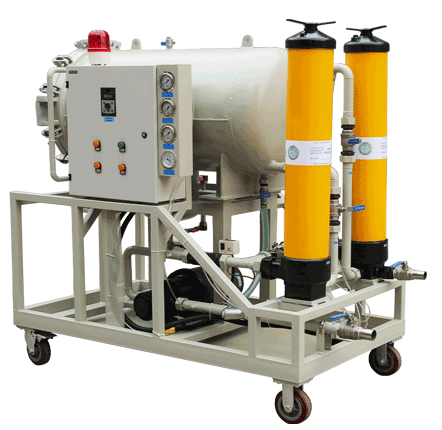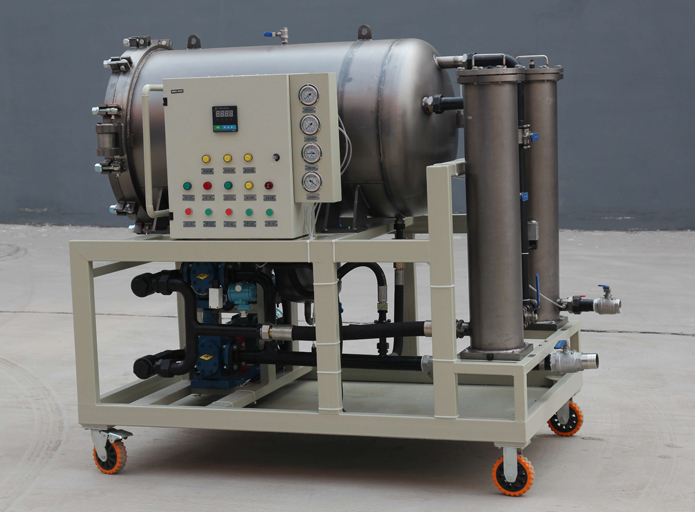Oil-water usually refers to a mixture of oil and water. Normally, oil should not contain water, especially oil in lubrication systems. If these oils are mixed with water, many hazards will occur:
① Water reacts with oil to form acid, colloid and sludge.
② Reduce lubricity and accelerate the wear of high-stress components.
③ Cause cavitation damage to the bonding of the control valve or other low-pressure parts;
④ Corrosion and rust of metals.
Therefore, it is necessary to strengthen the monitoring of water content in oil, so that users can detect and process the oil in time to ensure the normal operation of the unit or system.
Coalescing filters mainly use the density and polarity differences between oil and water to separate water from oil through special filter media. In terms of structural design, the coalescing filter is very compact, efficient and easy to maintain, which can help you save a lot of operating costs.

The working principle is that when a liquid mixed with oil and water passes through a special filter element, because the water molecules have a special affinity with the material of the filter element, the water is adsorbed on the filter element, and then large water droplets are formed and naturally fall to the bottom of the filter. The oil can flow out smoothly through the filter element, thereby achieving oil-water separation.
In addition, in addition to the oil-water separation function, this filter also has the ability to filter out relatively small solid particles in the mixed liquid, so the quality of the filtered oil will be higher.








